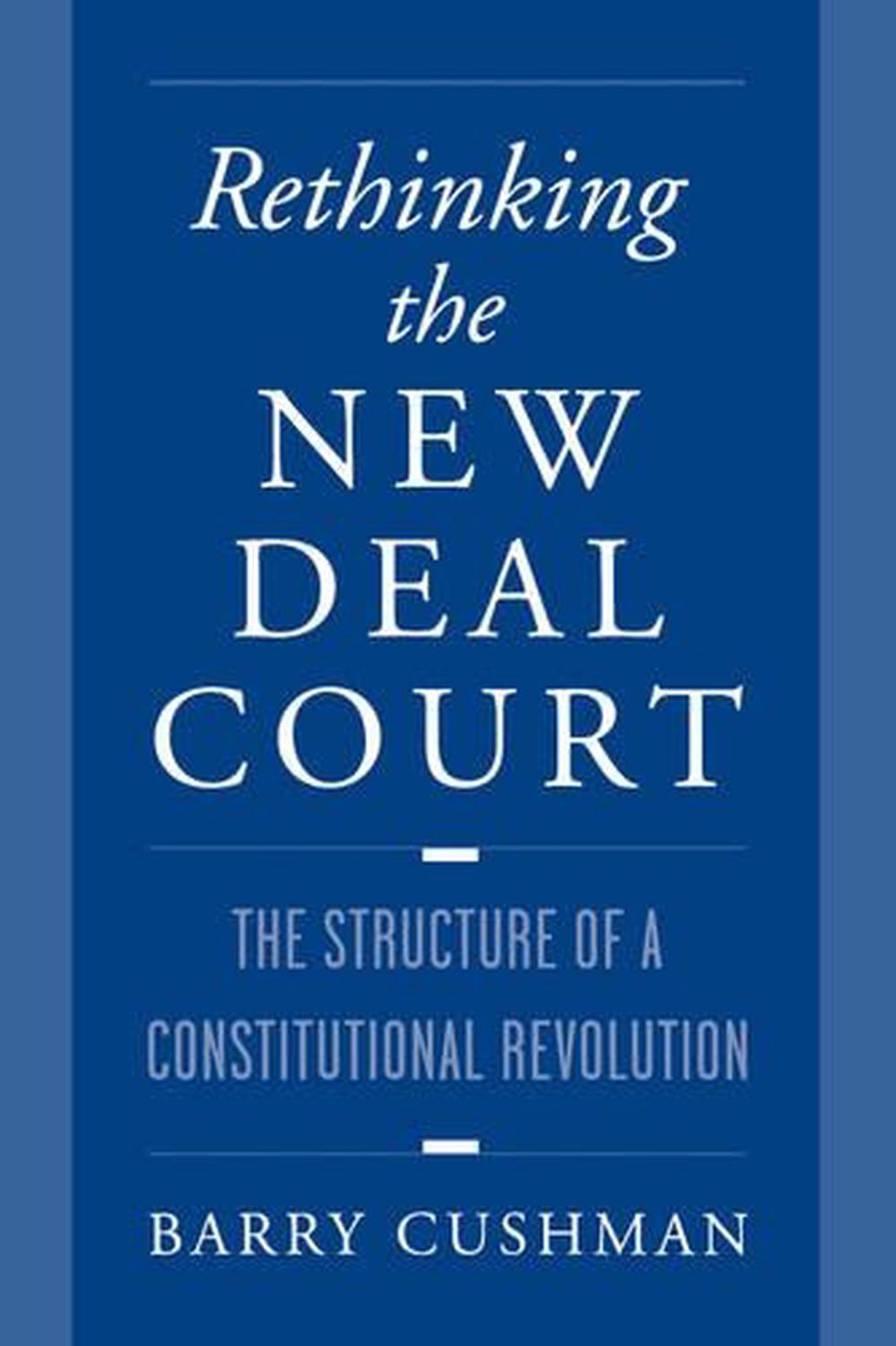
Rethinking the New Deal Court
The Structure of a Constitutional Revolution
- Paperback
336 pages
- Release Date
4 March 1999
Summary
This book challenges the prevailing account of the Supreme Court of the New Deal era, which holds that in the spring of 1937 the Court suddenly abandoned jurisprudential positions it had staked out in such areas as substantive due process and commerce clause doctrine. In the conventional view, the impetus for such a dramatic reversal was provided by external political pressures manifested in FDR’s landslide victory in the 1936 election, and by the subsequentCourt-packing crisis. Author Barry …
Book Details
| ISBN-13: | 9780195120431 |
|---|---|
| ISBN-10: | 0195120434 |
| Author: | Barry Cushman |
| Publisher: | Oxford University Press Inc |
| Imprint: | Oxford University Press Inc |
| Format: | Paperback |
| Number of Pages: | 336 |
| Release Date: | 4 March 1999 |
| Weight: | 476g |
| Dimensions: | 235mm x 156mm x 23mm |
You Can Find This Book In
What They're Saying
Critics Review
”…thoroughly researched, carefully reasoned, and clearly arguedpresentation.“–istorian
“A meticulous craftsman, Cushman builds a convincing case for his revisionist thesis. His book is a smooth blend of intellectual and political history; he is equally at home with the nuances of legal doctrine on the Court and the political battles going on outside it. He brings out of the large unruly mass of constitutional cases decided between 1870 and 1937 a strong, clear story, powerful in its simplicity and very persuasive. After this book no one will beable to talk about the ‘Constitutional Revolution of the New Deal’ in quite the same way again.”–Robert W. Gordon, Yale Law School”It is not often that a book comes along that provides a whole new way of thinking about a familiar subject. But Barry Cushman has written a convincing, revolutionary reinterpretation of the conventional wisdom about the so-called ‘Constitutional Revolution of 1937’ and its notorious ‘switch in time’. In the process, Cushman provides us with a compelling and powerful counter-argument about the true origins and dimensions of constitutional and historical changein the New Deal period.“–Alfred S. Konefsky, SUNY at Buffalo Law School”Cushman makes a strong case for weighing intellectual developments on the Court.“aw and History Reviews (Spring 2002)”…thoroughly researched, carefully reasoned, and clearly argued presentation.“–Historian”A meticulous craftsman, Cushman builds a convincing case for his revisionist thesis. His book is a smooth blend of intellectual and political history; he is equally at home with the nuances of legal doctrine on the Court and the political battles going on outside it. He brings out of the large unruly mass of constitutional cases decided between 1870 and 1937 a strong, clear story, powerful in its simplicity and very persuasive. After this book no one will beable to talk about the ‘Constitutional Revolution of the New Deal’ in quite the same way again.“–Robert W. Gordon, Yale Law School”It is not often that a book comes along that provides a whole new way of thinking about a familiar subject. But Barry Cushman has written a convincing, revolutionary reinterpretation of the conventional wisdom about the so-called ‘Constitutional Revolution of 1937’ and its notorious ‘switch in time’. In the process, Cushman provides us with a compelling and powerful counter-argument about the true origins and dimensions of constitutional and historical changein the New Deal period.“–Alfred S. Konefsky, SUNY at Buffalo Law School”Rejecting as simplistic and incomplete the now familiar political switch-in-time explanations of the Court’s decisions upholdingkey New Deal legislation, Cushman offers an account of those 1937 cases that sees them as logical as well as intellectually and legally honest outcomes of somewhat earlier developments in constitutional doctrine…This is a well-crafted book; it offers a compelling story.” –Law and Politics Book Review”Professor Cushman has written a brilliant, provocative account that contributes a much-needed broadened interpretive perspective to the constitutional history of the New Deal era.“–The Journal of American History”Rejects the standard interpretation of the New Deal as a revolution in constitutional law necessitated by conservative judicial opposition to modern liberalism…Cushman bases his account on case fact situations, the arguments of counsel, the opinions of judges, and private correspondence…Eliminating a standard explanation of it, he raises the question of what Roosevelt administration was really trying to do, constitutionally speaking.” The Journal ofSouthwestern History
About The Author
Barry Cushman
Barry Cushman is at Saint Louis University.
Returns
This item is eligible for free returns within 30 days of delivery. See our returns policy for further details.




